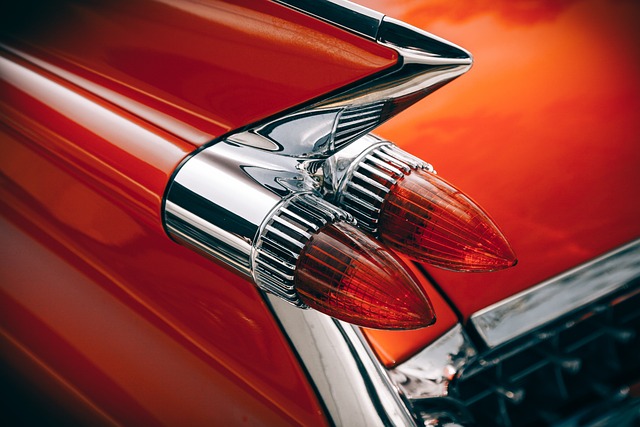Verifying a classic car's Vehicle Identification Number (VIN) is essential for buyers and enthusiasts, as it confirms the vehicle's authenticity, historical details, and safety features. Using official online services or professional inspections, one can cross-reference VINs against databases to access ownership history, accident records, and maintenance logs. This process protects buyers from fraud, aids in part finding, ensures historical accuracy, and safeguards against mechanical issues, fostering trust within the classic car market.
Uncover the secrets of your classic car with expert tips on VIN (Vehicle Identification Number) verification. Understanding your VIN is crucial for authenticating the vehicle’s history, ensuring its integrity, and making informed decisions. Accurate VIN verification is essential before restoration or sale to avoid misrepresentations. This guide details the steps to conduct a thorough check, along with recommended tools and resources, empowering you to confidently verify the vin number of any classic car.
- Understanding Your Classic Car's VIN (Vehicle Identification Number)
- The Importance of Accurate VIN Verification
- Steps to Conduct a Comprehensive VIN Check
- Tools and Resources for VIN Validation in Classic Cars
Understanding Your Classic Car's VIN (Vehicle Identification Number)

A classic car owner’s journey often involves a deep appreciation for the vehicle’s history and authenticity, making VIN verification a crucial step. The Vehicle Identification Number (VIN) is like a unique fingerprint for your classic car, providing vital information that helps ensure its genuineness during restoration or sale. It’s more than just a serial number; it’s a key to unlocking the car’s past, including its original manufacturer, year, model, and even specific production details.
When you verify your classic car’s VIN, you’re essentially cross-referencing it with official records to confirm its identity. This process is essential for building trust in the market, especially among enthusiasts who value authenticity. It allows owners to prove their car’s originality, which is critical when dealing with rare or valuable classics, ensuring potential buyers receive a genuine piece of automotive history.
The Importance of Accurate VIN Verification

The process of accurately verifying a classic car’s Vehicle Identification Number (VIN) is paramount for several reasons. It serves as the unique fingerprint of any vehicle, containing vital information about its manufacturing details, history, and even safety features. When buying or selling a classic car, proper VIN verification acts as a shield against potential fraud and ensures you’re making an informed decision. Moreover, it’s crucial for tracking down genuine parts, maintaining historical accuracy, and ensuring the car’s condition aligns with its claimed history.
An incorrect or manipulated VIN can lead to unexpected issues, from mechanical problems to legal complications. Therefore, experts recommend using reliable methods and tools to verify the VIN number, such as cross-referencing data from reputable sources or seeking professional inspections. This meticulous approach guarantees that classic cars find their right owners while preserving their authentic legacy.
Steps to Conduct a Comprehensive VIN Check

To conduct a comprehensive VIN (Vehicle Identification Number) check, start by obtaining the vehicle’s VIN from its registration documents or by inspecting it on the vehicle itself—typically found on a plate in the engine bay or near the door jambs. Once you have the VIN, use an official and reputable online service to verify its authenticity. These services cross-reference the provided VIN against vast databases, including those of car manufacturers, insurance companies, and government agencies, to ensure it matches the records for that specific vehicle.
During this process, pay close attention to any discrepancies or potential signs of tampering. The check should include a detailed history report outlining ownership changes, accident reports, and maintenance records. By following these steps, you can gain valuable insights into the car’s past, ensuring a more informed decision when purchasing a classic car.
Tools and Resources for VIN Validation in Classic Cars

When it comes to classic cars, ensuring the integrity and authenticity of the vehicle is paramount. One crucial step in this process is verifying the Vehicle Identification Number (VIN). Fortunately, several tools and resources are readily available to assist enthusiasts and professionals alike in this task. Online databases, such as those offered by car history companies, allow users to input a VIN number and gain access to detailed information about the vehicle’s past, including ownership records, accident reports, and maintenance histories.
Additionally, specialized VIN verification services provide advanced tools like digital imaging and data cross-referencing to ensure the VIN is genuine and not altered. These resources are invaluable for classic car enthusiasts who want to maintain the historical accuracy of their vehicles. With the right tools at hand, verifying a VIN becomes a straightforward process, enabling owners to make informed decisions about their classic cars’ care and restoration.
When it comes to classic cars, proper VIN verification is essential. By understanding your vehicle’s unique identification number and taking a systematic approach to validation using reliable tools, you can ensure its authenticity and value. Accurate VIN checks are crucial for both buyers and sellers, providing peace of mind in this classic car realm. Remember, a thorough VIN inspection is the first step in navigating the market and securing a trustworthy transaction.
